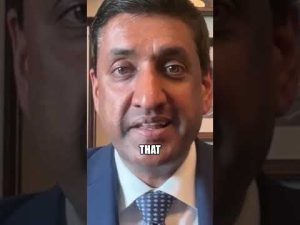**The Tug-of-War Over Presidential Immunity: A Rising Storm in the Courts**
In a politically charged atmosphere, a legal battle is brewing that could have serious implications for the presidency and the very foundation of American jurisprudence. The central figure in this unfolding drama is none other than Judge Juan Maran, who recently stirred the pot by seemingly disregarding the Supreme Court’s monumental decision regarding presidential immunity. The Supreme Court established that a sitting president cannot be prosecuted for actions taken while in office, distinguishing between official acts and personal misconduct. However, Maran’s actions have raised eyebrows and ignited fierce debates among political commentators and legal analysts alike.
According to some legal experts, Maran allowed dubious evidence into court that is deemed irrelevant to the case at hand. Critics argue that this line of questioning directly contradicts the Supreme Court’s ruling, which explicitly protects a president’s official actions from judicial scrutiny. The consensus among critics is clear: Maran’s failure to adhere to this decision has not only jeopardized the integrity of the legal process but has also set a dangerous precedent for future cases involving elected officials. In a political climate where partisan divides are sharper than ever, such inconsistencies serve to fan the flames of division further.
Adding to the controversy is the alleged connection between the judge and the Democrats. It has been suggested that Maran’s personal ties, particularly through his daughter who works as a Democratic consultant, create an appearance of bias. This has sparked calls for accountability and prompts questions about the impartiality of those entrusted to adjudicate legal matters. There are fears that the integrity of the judiciary could be compromised, as critics demand that judges recuse themselves from cases where a conflict of interest might exist. The integrity of the legal system rests on the principle that justice must be served without prejudice, and any breach of that principle is a cause for alarm.
This legal fiasco has implications that stretch far beyond President Trump himself. If the left succeeds in downgrading the sanctity of presidential immunity, it could establish a slippery slope for future leaders. The thought of any sitting president living under the constant threat of criminal prosecution is concerning for the functioning of the executive branch. As legal analysts speculate about the potential ramifications, it becomes evident that this issue could create a constitutional crisis that jeopardizes the checks and balances designed to maintain stability in American governance.
As the legal proceedings unfold, some are calling for a swift response from Trump’s legal team and the incoming administration. There are proposals for investigations into the alleged misconduct of prosecutors and judges, with calls for a grand jury inquiry into possible conspiracy against the rights of political opponents. It’s suggested that if the scales of justice are not balanced, it may be time for the Trump administration to take matters into its own hands by pursuing action against those who might be perceived as abusing their power. After all, in a society governed by the rule of law, accountability must be universal—after all, nobody is above the law.
In a world where legal battles often take center stage and the stakes are high, the outcome of this tangled web of judicial controversy may well shape the future of American politics. The concerns voiced by legal experts and political commentators underline the pivotal role of impartiality and justice in a democratic society. With the fate of the presidency hanging in the balance, the nation watches closely as the drama continues to unfold in the courts, holding its breath for what comes next in this unprecedented chapter of American history.







